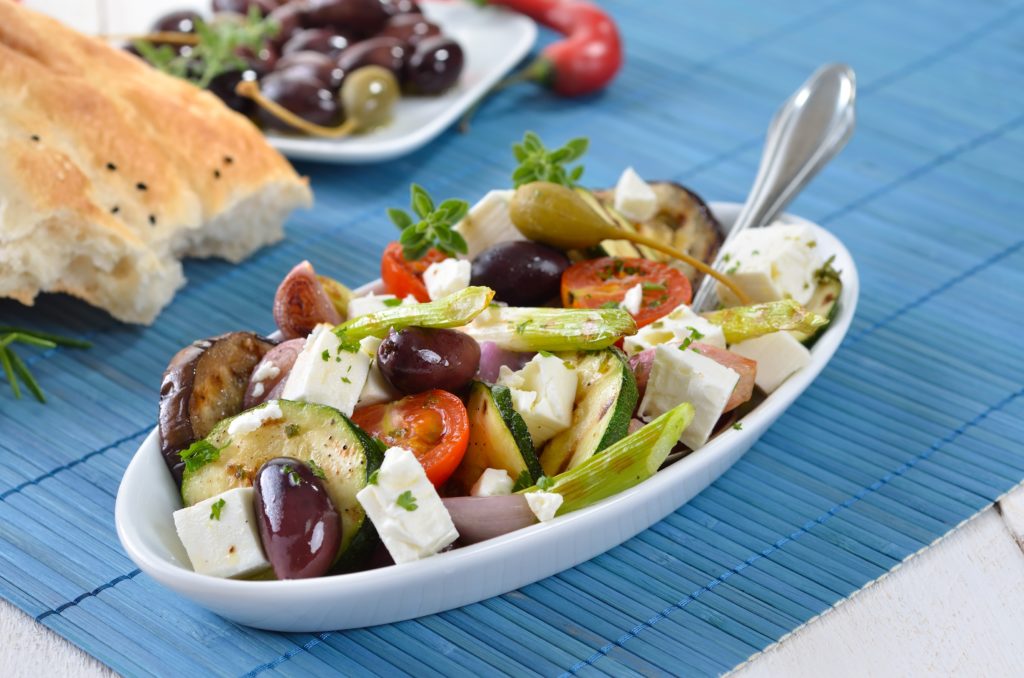Lose weight: a Mediterranean diet keeps you from Overeating
Mediterranean and Western diet in comparison with Surprising results
Researchers from the US have compared in an Experiment with monkeys, the Mediterranean diet with the Western. The results were surprising: It showed that the so-called Mediterranean diet prevents from Overeating.
The healthy Mediterranean cuisine
Experts emphasize again and again the benefits of the healthy Mediterranean diet. Italian, Spanish or Greek dishes are not only extremely delicious, but due to the ingredients often also have a positive impact on our health. As revealed in scientific studies that a Mediterranean diet reduces the risk for strokes and heart attacks, and even against dementia and depression. In addition, this diet is according to the experts, the most successful diet for losing weight. This may also be related to the fact that it prevents from Overeating.

Normal weight maintained
Researchers at the Wake Forest School of Medicine in Winston-Salem, NC (the U.S. state of North Carolina) found in a scientific study with non-human primates, that the Mediterranean diet prevents from Overeating.
In the study, in the Mediterranean sea – the Western diet was compared, it showed that the monkeys were subjected to a Mediterranean diet did not want to eat the whole of the available food and maintain a normal weight maintained.
“For comparison: The animals with the Western diet ate far more than they needed, and participated in weight”, said study leader Prof. Carol A. Shively of Wake Forest School of Medicine, in a communication, the EurekAlert by the specialist magazine “!” has been released.
The results of the study were published in the journal “Obesity”.
Proteins and fats are primarily from vegetable sources
According to Shively, this was the first preclinical study in which the effects of long-term consumption of a Western diet were compared to a Mediterranean diet on obesity-related diseases under controlled experimental conditions.
Previous research on the effects of this diet on the calorie intake is Mainly based on studies with humans, based on self-reported food intake, which is often unreliable – or in studies with rodents received a non-human diet.
In the current study, cynomolgus monkeys, over received about 38 months (the equivalent of about nine years in humans) either Mediterranean or Western food.
In the former, the proteins and fats are mainly from plant, in the latter, mainly from animal sources. The two diets contained similar amounts of fat, protein and carbohydrates.
The 38 female monkeys of the two groups were allowed to eat during the entire study as much as you wanted.
In the message is acknowledged that the small number of investigated animals was a weak point of the study, however, the results are not convincing.
Healthier foods to consume
“We found out that the group took with a Mediterranean diet is actually less calories, less body weight and had less body fat than the Western,” explained Shively.
As it says in the message, the results provide the first experimental evidence that a Mediterranean diet protects in comparison to a Western diet against excessive consumption, obesity, and prediabetes.
According to the experts, the Mediterranean diet also protects against non-alcoholic fatty liver disease (NAFLD). This can cause liver cancer and cirrhosis of the liver. Obesity is one of the main causes of NAFLD.
“The composition of the diet is an extremely important contribution to public health in the United States. Unfortunately, those who have the greatest risk for obesity and related costly chronic diseases also have the worst nutritional quality,“ says Shively.
“The Western diet developed by companies and promoted, the want us to eat their food,” said the scientist. The food would be so “produces a very tasty”, so that we consume too much of it.
The Mediterranean diet allow it people to enjoy their food and not eat too much.
“We hope that our results people will encourage healthier foods to take the fun and human health.” (ad)
